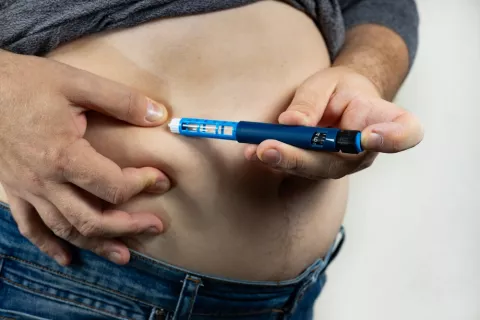The Spanish vaccine against COVID-19 developed by the biotechnological pharmaceutical Hipra, based in Girona, has obtained very good results in the latest analyzes to which it has been subjected and which have been disclosed by the company, since these reveal that this The vaccine provides powerful protection against the subvariants of omicron BA.2 and BA.4/BA.5, which are responsible for the latest mass infections by the SARAS-CoV-2 coronavirus.
A few months ago, studies on this vaccine against COVID-19 showed that it was effective against the omicron variant, and now it has been confirmed that 14 days after being administered as a booster dose in people who had previously been vaccinated with two doses of Pfizer/BioNTech, there is an increase in neutralizing antibodies against the BA.2 and BA.4/BA.5 subvariants of omicron.
And an increase in neutralizing antibodies against BA.4/BA.5 has also been found 14 days after receiving the booster with the Hipra vaccine in a subgroup of participants who had previously been vaccinated with the Moderna messenger RNA vaccine .
“With a percentage of the population close to 50% that has not yet received the booster dose, it is positive that the European population has vaccines with other alternative technologies to those of mRNA”
“What we had previously seen is confirmed: we are facing a vaccine with a broad spectrum of protection against all the variants that have been appearing lately,” said Carles Fàbrega, director of the pharmaceutical company’s Human Health Division. From the company they add that “the Hipra vaccine fits with the current needs in Europe. With a percentage of the population close to 50% that has not yet received the booster dose, and thinking about the autumn vaccination campaigns, it is positive that the European population has vaccines with other alternative technologies to those of mRNA”.
Hipra’s anti-COVID vaccine is effective, safe and well tolerated
Hipra’s vaccine is based on recombinant proteins and has already passed laboratory tests and the first phases of clinical trials in patients. In February, the drug was tested in a study involving 3,000 volunteers from some 20 hospitals throughout Spain and various centers in Italy and Portugal, and the European Medicines Agency (EMA) has already begun to review the safety, quality and efficacy of the product to study its final approval.
According to the results of some of the trials they have carried out, Hipra reports that their vaccine provides a powerful neutralizing antibody response, which, according to their researchers, can multiply by more than 10 and are effective against all the variants studied ( Wuhan, Beta, Delta and Omicron (BA.1) at days 14 and 98. The Hipra vaccine, in fact, would generate a “longer lasting and more effective” response against the new circulating variants than Pfizer’s.
And from biotechnology they also highlight that the clinical trials they have carried out so far have continued to demonstrate the “good safety and tolerability profile” of the drug, not having observed “relevant” adverse effects, since the most common reactions have been pain at the injection site, or headache or fatigue for a few days, which has not interfered with the study participants’ daily activities.
Hipra’s next goal is to shortly begin an extension of the phase IIb study (‘HIPRA-HH-2’) to evaluate both the safety and the immune response of a fourth booster dose with its vaccine. 200 volunteers from 10 Spanish hospitals are expected to participate in this trial, half of whom will have three doses of Pfizer and the rest two doses of Pfizer and one of Hipra.
When will the Spanish vaccine against COVID arrive?
Regarding when this drug will be available in clinical practice, in a recent visit to the Marqués de Valdecilla University Hospital in Santander, the Minister of Health, Carolina Darias, answered a question about this vaccine in which she stated that “it is continuing its course and We have all the expectations placed on the Spanish vaccine, on the Hipra vaccine, to be able to count on it this fall.”
Which perhaps answers in turn to the question of why Spain is delaying the announcement of the second booster doses for the elderly (fourth doses in some cases), postponing it until the fall, when it is expected that more effective vaccines will be available. against the new subvariants.
.












